In 1970 Fr. Hans Kung wrote the book Unfehlbar? Eine Anfrage (Infallible? An inquiry). In it he radically contested the dogma of Papal Infallibility and challenged theologians to open a debate on the topic.
Fr. Karl Rahner took the initiative to respond to that challenge. He invited a number of progressivist theologians to give their opinions on the subject. Their collaborations were coordinated by Rahner and published in 1971 under the title Zum Problem Unfehlbarkeit (The Problem of Infallibility).
Among the authors invited to give an opinion was Fr. Joseph Ratzinger, who wrote an article entitled "Contradictions in the book 'Infallible' by Hans Kung."
Many of the authors in this book were apparently defending the dogma of Papal Infallibility. In fact, this was just for appearances. They took advantage of Kung's book to insidiously affirm that Papal Infallibility should change, even though they raised objections to Kung's view as exaggerated.
Singing in this choir was Fr. Joseph Ratzinger, today's Pope Benedict XVI. He took the same position of sabotaging Papal Infallibility.
We offer texts from Ratzinger's article that was included in this work translated to English from the Portuguese edition (Sao Paulo: Loyola,1974). In these two texts, with the Portuguese version highlighted at right, Ratzinger affirms his support for Kung.
In the first quote, he agrees with Kung that Papal Infallibility should be reformulated. Ratzinger states:
"A predominantly critical article should not, however, ignore the positive side of Kung's book. This can be clearly deduced from all that we have said before, when we affirmed that he opened for discussion, in an explicit and unequivocal way, problems that must be reformulated. He denounced obscurities in the historic and systematic structure of Catholic theology, which in fact have persisted and until now have usually been avoided and not confronted head-on" (O problema da Infalibilidade, Sao Paulo: Ed. Loyola, 1974, p. 93 - original text highlighted at right).
Ratzinger goes on to support Kung's position versus the Theology of Rome, of which today he is the top representative... He stresses:
"I want to emphasize again that I decidedly agree with Kung when he makes a clear distinction between Roman theology (taught in the schools of Rome) and the Catholic Faith. To free itself from the constraining fetters of Roman Scholastic Theology represents a duty upon which, in my humble opinion, the possibility of the survival of Catholicism seems to depend" (Ibid., p. 101, last text highlighted at right).
|
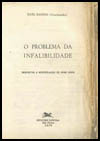
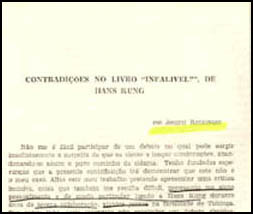
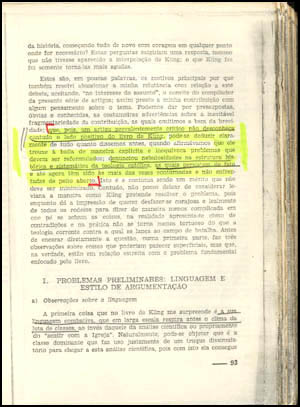
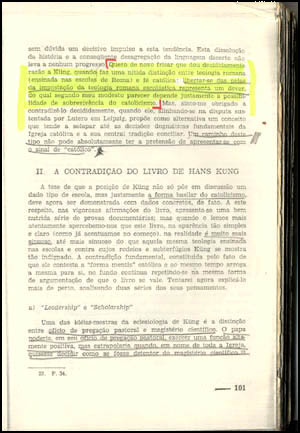 |
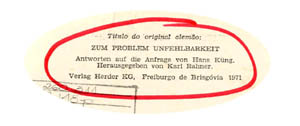 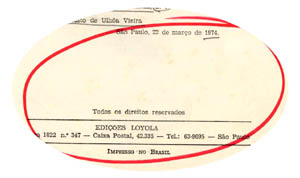 |
|
